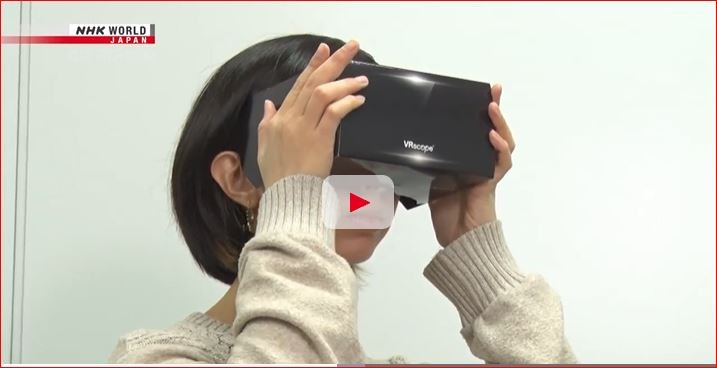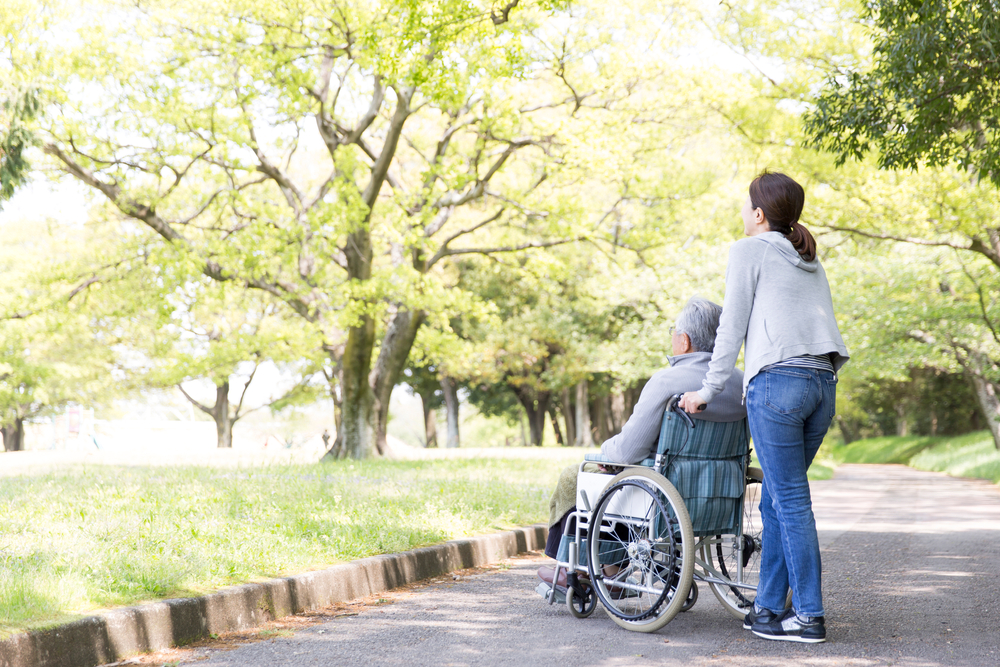I WANT
RELATED LINKS
I WANT
RELATED LINKS
RELATES LINKS
I WANT
RELATES LINKS
Services
Related Links
Use and Management of Cookies
We use cookies and other similar technologies on our website to enhance your browsing experience. For more information, please visit our Cookies Notice.
- Personal Banking
- Stories & Tips
- Protect My Family
- Technology to prevent and cope with dementia in the elderly
- Personal Banking
- ...
- Technology to prevent and cope with dementia in the elderly
Technology to prevent and cope with dementia in the elderly
Technology to prevent and cope with dementia in the elderly
20-01-2022
Dementia is a disease that no one wants to be, but from the statistics, dementia in the elderly is increasing. As a result of entering an elderly society or Aging Society. As a result, the number of people suffering from dementia disease has increased in Japan. In 2020, there are 6.3 million people living with dementia disease in Japan, and it is estimated that as many as 7.3 million people will suffer from dementia by 2025, meaning that by 2025, 20% of the elderly in Japan will be sick. with this disease. Therefore, many The company invents and produces more products and services for dementia patients. For example, an insurance company has insured property for damage caused by dementia patients. And now more than 1 million people have bought this insurance.
Due to the increasing number of elderly people suffering from dementia both banks and other service businesses have to deal with more and more patients with dementia. A VR training program to train employees in dealing with clients suffering from Alzheimer's disease was developed by Michibata Kensuse. Because there are many customers who are service businesses tell him that. Employees are increasingly having trouble serving people with dementia and don't know how to cope. He, therefore, uses a simulated approach using professional actors and VR technology. He sees VR helping employees learn more about patients. The VR-based training activity program is a pair of glasses that are worn and entered into lessons to learn and understand patients with dementia. It is designed to teach bank employees how to properly treat customers suffering from dementia.

Staff: What can I help you with? I remember you came to the bank yesterday.
Patient: No, this is my first time here.
Staff: No, I've seen you before.
Patient: I said it was my first time. Don't make me a clown because I'm old.
The patient was angry and yelled at the staff.
After that, the video will guide you on how to properly practice and talk to the patient, for example:
Staff: You're wearing a very beautiful shirt today.
Patient: Hello, thank you very much. It's a nice day today.
Staff: I'm glad to see you today.
Patient: Thank you. I'm glad to see you.

The course will provide tips such as things to remember, for example:
· Safety for both the environment and the health of patients.
· Communicate with clear and calm words.
· Take the patient to talk in a quiet area to avoid adding stress to the patient
· If necessary, inform the patient's family that the patient is here.
The VR training machines are sold 1000 units per unit, which focuses on selling to large companies. The software license and headset cost about $30 per employee. Currently, two large banks in Japan have bought them and used them to train their employees in dealing with customers. Including government agencies use this VR system to train employees as well. In addition to training nurses who care for dementia patients, it also provides an understanding of how patients face difficulties in life. This makes people who care for patients understand and want to help them from the heart.
In addition, devices have also been invented to prevent dementia in the elderly or make those who begin to experience remission from the disease. This machine is a bike with a screen as a game machine to train the brain. This allows both exercise and brain training at the same time. Patients who tried this machine said it was a lot of fun. and make cycling longer. It is a bicycle designed for the prevention of dementia, especially during cycling. The rider has to answer a variety of questions from the screen. According to research results, exercise together with brain training can prevent dementia. Doing these two activities at the same time is called Cognicise, which comes from the word cognition + exercise. The game has 4 levels of difficulty and 6 types of questions to choose from. about calculating numbers Matching the name to the picture questions about animals The more challenging and difficult the questions, the more brain work. The inventor of the Cognicise blender is Dr. Shimada Hiroyuki, who has been researching and helping the elderly to avoid dementia for more than 20 years. In one trial, the doctor tested 300 patients with early-stage dementia. With a 10-month trial period, the results showed that those who participated in the Cognicise trial showed significantly better brain improvements than those who did not.

Cognicise aims to keep users thinking while exercising and having fun. If done consistently, this method has been tested to be effective, the Cognicise machine will collect data so that players can see their improvements over time. Seeing his own improvement gives players encouragement and wanting to continue playing this Cognicise. Some players say that although his scores have improved slightly, he considers the method worthwhile. In addition, the interesting function is The viscosity of the blender increases with the number of questions answered correctly. If a player answers a large number of questions correctly, he or she is more interested in answering the question than spinning. Making the blender more viscous, causing the players to turn their attention to the spinning more there. This machine costs $10,000 but can be rented for $180 per month. Currently, this device is mainly used in elderly care centers, and now Dr. Shimada Hiroyuki is developing a new device for the elderly to use at home. Due to covids, the elderly have to stay at home more. Not interacting with others increases the chances of Alzheimer's disease. Having this machine at home can be of great help.
The health of everyone in the family is important. If someone in the family suffers from a chronic disease, it is not only the patient who suffers. Everyone in the family is inevitable to be affected as well. Staying healthy with prevention is better than cure. However, getting sick can still happen. Having the right health insurance can help ease the burden of expensive medical care. If you are interested in getting health insurance with SCB, you can learn more at https://www.scb.co.th/th/personal-banking/insurance/health-insurance.html
Related Product Or Service
Related Stories
- Pen Pal, a project to heal the hearts of the elderly connect with younger generation Open left rail for additional features
- Robot…Innovative Solution for Social Distancing Era Open left rail for additional features
- 7 SENIOR HOUSING OPTIONS: WHICH ONE WORKS BEST? Open left rail for additional features
